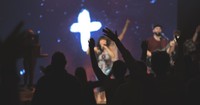Laid-off Religious Workers Denied Jobless Benefits
- Steven G. Vegh Religion News Service
- Published May 21, 2009

VIRGINIA BEACH -- God may provide, but the state may not when it comes to unemployment benefits for employees laid off by churches, synagogues and other religious groups.
Carol Bronson discovered that a few months ago after she lost her secretarial job at Temple Emanuel synagogue in Virginia Beach. Bronson assumed she could draw unemployment benefits, but when she filed a claim, she was denied.
It was a hard way to learn that under Virginia law, as in many states, tax exemptions for religious organizations include freedom from paying unemployment taxes, though the IRS requires they pay Social Security and withholding taxes.
"I had no idea that there would not be any benefits for me after leaving my job," said Bronson, who worked at the synagogue for two years. She's since found a job with a wholesale flower market.
Neither did Rabbi Howard Mandell of Temple Emanuel. The synagogue had no knowledge of Virginia tax law when it decided on a layoff, he wrote in an e-mail.
Budget cuts, including layoffs, are one way religious congregations are coping with a recession that has slashed their income from investments or contributions.
Earlier this year, a survey by the National Association of Church Business Administration showed that 32 percent of responding U.S. churches were having economy-related difficulties, up from 14 percent in August. Twenty percent said they had laid off staff.
For workers who are left jobless, unemployment benefits are a big piece of the social safety net. In Virginia, payments range from $54 to
$378 weekly. Benefits are available only to people whose employers paid the unemployment tax.
Not every state bars unemployment compensation to employees of religious groups.
In New York, for example, employees whose work is not religious in nature, such as a cook or a secretary, are entitled to benefits, and their employer must pay the state unemployment tax, said Karen Williamson of the New York Department of Labor.
But in Virginia, the lack of state unemployment benefits surprised Jane Dembert, who was laid off by Christ and St. Luke's Episcopal Church in Norfolk earlier this year.
Dembert was the church's director of communications and had worked there 17 years when she lost her job. She filed for state unemployment benefits and was denied.
The Rev. C. Berkley Ford of Christ and St. Luke's said the cutback was a painful choice. He said the church was grappling with lower revenue and higher demand for services such as its soup kitchen. He gave his own cost-of-living pay raise back to the church.
"We have no say over whether or not an employee who loses their job for economic reasons is entitled to collect unemployment insurance," he said. "That's determined by the state agency."
Dembert is allowed to stay on the church's health insurance policy for 18 months, though she must pay 100 percent of the premiums.
Coleman Walsh, chief administrative law judge with the state's employment commission, said his experience is that most people don't know faith-based groups are exempt from unemployment taxes.
Sarah Scott Thomas, spokeswoman for the Episcopal Diocese of Southern Virginia, said that's true in her faith community, which announced on May 15 the layoffs of three employees at the diocese's headquarters in Norfolk. She said people mistakenly view churches as nonprofit organizations, subject to the same tax regulations covering secular nonprofit groups that pay into unemployment.
Despite their tax exemption, religious groups in Virginia can voluntarily pay unemployment benefits. That's what the Catholic Diocese of Richmond has done with a self-insurance fund rather than paying into the state fund.
The arrangement allows a laid-off parish staffer, parochial school employee or diocesan worker to file a claim with the unemployment commission. If the commission approves the claim, it bills the diocese for the total amount of benefits the worker will receive.
The diocese reimburses the state and then recovers that sum from the school, parish or Catholic entity where the employee formerly worked. The diocese adopted the self-insurance model in 1981 to match working conditions of secular nonprofits, said John Barrett, the diocese's finance director.
Rex Frieze, an Orlando, Fla.-based expert on church accounting and taxes, said religious groups should tell workers during hiring that they won't qualify for unemployment benefits.
"If they leave the church, they won't be covered, and that is a shock for many churches," he said.
Steven G. Vegh is a writer for The Virginian-Pilot in Norfolk, Va.
c. 2009 Religion News Service
Original publication date: May 22, 2009




















